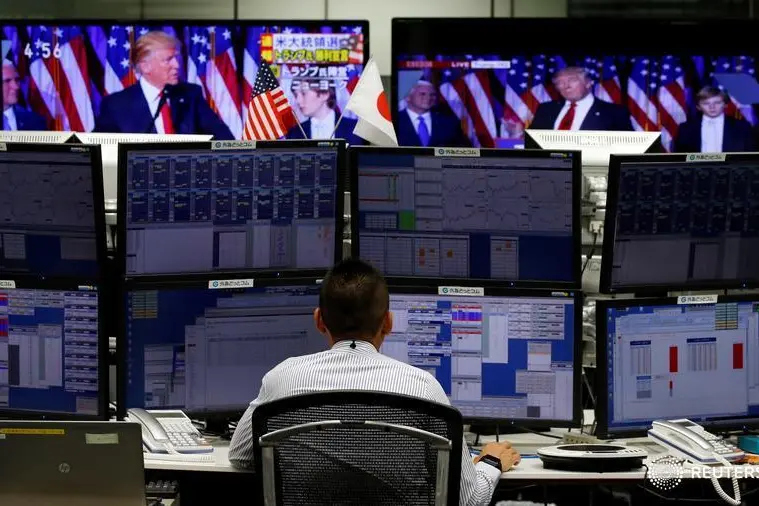PHOTO
SYDNEY - Asia share markets tried to regain their footing on Tuesday as tremors from the collapse of the Turkish lira ebbed a little and Wall Street proved resilient to the shockwaves.
Japan's Nikkei led the early running with a gain of 1.0 percent, while Australia added 0.4 percent.
MSCI's broadest index of Asia-Pacific shares outside Japan was flat having found support above the July low of 525.52. EMini futures for the S&P 500 edged up 0.2 percent, while 10-year Treasury yields held at 2.88 percent.
Investors were encouraged that falls on Wall Street were only minor. The Dow ended Monday down 0.5 percent, while the S&P 500 lost 0.40 percent and the Nasdaq 0.25 percent.
Chinese economic data could provide a distraction with July retail sales, industrial output and urban investment all due.
Forecasts favour a slight pick up in activity while the outlook should be supported by Beijing's recent efforts to encourage lending and boost infrastructure spending.
Turkey's lira found a moment's respite at 6.9500 per dollar after the country's central bank said it would provide liquidity and cut reserve requirements for banks.
Yet it still lost almost 10 percent on Monday alone and has shed more than two-fifths of its value so far in 2018.
The rot spread to the South African rand and the Argentine peso. Argentina's central bank surprised by raising interest rates by 5 percentage points on Monday, but it was still not enough to stop the peso hitting a record low.
GOLD LOSES ITS LUSTRE
JPMorgan economist David Hensley argued that strains in most other emerging markets (EM) would be contained.
"Negative developments in Turkey will likely be eventually seen, along with Argentina, as isolated given their exceptional external imbalances compared to most EM countries," he said.
"Nonetheless, we are mindful of political risk elsewhere in the EM involving Russia as well as Brazil, Mexico, and even India."
For now, concerns about the exposure of European banks to Turkey pushed up bond yields in Spain and Italy and hobbled the euro. The single currency was last at $1.1398, having touched its lowest since July 2017 on Monday.
It also reached one-year lows on the yen and Swiss franc, traditional safe harbours in times of stress.
The dollar steadied at 110.63 yen, having hit a six-week trough around 110.11 on Monday. Against a basket of currencies, the dollar was a shade softer at 96.338.
In commodity markets, gold looked to have lost its safe-haven halo and slid to its lowest since late January 2017. It was last down at $1,1192.66 an ounce.
U.S. government data out last week showed that gold speculators had lifted their bearish bets to a record.
Holdings of the largest gold-backed exchange-traded fund (ETF), New York's SPDR Gold Trust GLD, have dropped about 10 percent from their April peak and are at their lowest since February 2016.
Oil prices inched higher in early Asian trade with Brent up 15 cents at $72.76 a barrel , while U.S. crude added 17 cents to $67.37 . [O/R]
(Reporting by Wayne Cole; Editing by Eric Meijer)
© Reuters News 2018





















